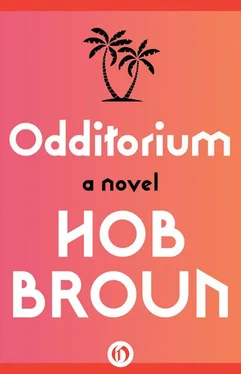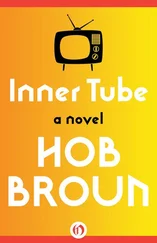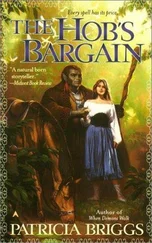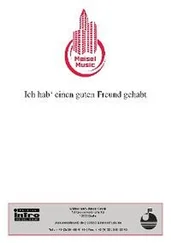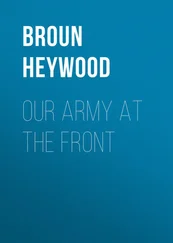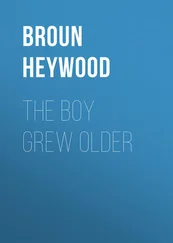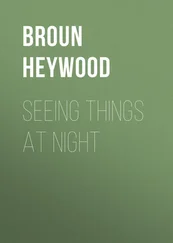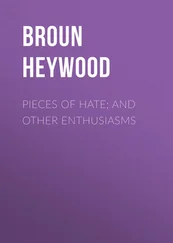Freed’s game didn’t need a steerer. He kept to a select clientele, cosmopolites and professional people who wouldn’t get ugly if they dropped a few thousand, for whom it was better to be stone broke than uncool. He made generous contributions to the police department’s bulletproof-vest fund and kept the hard boys away with monthly payments and the understanding that if he booked any sports bets, he’d lay them off with some new talent they were bringing along, a decertified osteopath over in Jersey who was just coming off a three-year bit for Medicaid fraud.
“So what is it you’ve gotten me into?” Christo asked. “I mean, I’m not going up against pros I hope. I’d hate to get sandbagged all the way back to square one.”
“Would I lead you into that kind of spot? Hey, you should be able to put four walls and a roof around this type of competition. They’re lightweights, believe me. It’s only a game to them and to you it’s a job. It’s not a question of whether you’ll win, but how much.”
“Then what the hell is all this for?” Christo pointed to the piles of money and the packs of cards.
“I want you to be in your best fighting trim, that’s all. A little science, a little superstition. Remember what I said about maximizing your advantages? Now then, I’m going to deal you some straight flushes and I want you to really concentrate on a visual image of those cards.”
“This is a cash-only game. No checks, no IOUs.” Freed wore loafers without socks, satin jogging shorts and a white shirt open to his sternum. “We play no-limit table stakes here with check and raise permitted. It’s a fixed five-dollar ante, dealer calls the game and I take five percent out of every pot.”
Christo nodded. “Then I guess we’ll have to try to keep the pots small.”
“There’s an open bar.” Freed had the rote geniality of a tour guide. “Please help yourselves.”
Pierce poured himself a large neat Scotch. Christo opted for plain soda with a chunk of lemon.
“Who’s that?” Nodding to the brown colossus standing by the door.
“Security. This is his summer job. Rest of the time he’s what they call a nonteaching assistant at some vocational school in Brooklyn. Used to be a pro wrestler, the Mighty Bobo.”
“I thought these guys were supposed to be well-mannered. Family men.”
“You’ll see.”
Then Pierce introduced him to the other players: Steve, the record producer; Randy, who owned a couple of Japanese restaurants; Dennis, the lawyer; and Maury, from Wall Street. They shook hands and went back to arranging their money — fifties, hundreds, great sheaves of them. Freed tore the cellophane off two factory fresh decks, spread them out on the spotless green baize.
“You fellas don’t use the jokers, huh?” Christo said as all four were removed and torn in half.
“Where are you from anyway?”
“Newport, Kentucky. Fast horses, beautiful women, and plenty of side meat with greens.”
“Swell. A tourist.”
“Welcome to actionland, pal.”
“Come on, come on. First jack deals.”
On the first hand he stayed with all the way, Christo got sandwiched between an ace-high flush and queens full, and lost a little over four hundred dollars. Maury from Wall Street had whipped the pot skillfully and didn’t seem like any lightweight from where Christo was sitting. He glanced at Pierce with raised eyebrows.
“Early yet,” his partner said. “Pace yourself.”
Then he cut the cards for the new deal and his face said: I brought you to the zone, but now you’re on your own.
Tildy, too, was on her own and this was a day weighted with gloom from the moment she’d opened her eyes. In the note he’d left her, Christo suggested she take in a movie or visit the Botanical Gardens, as he’d be tied up all day. Thank you very much. Tildy could accommodate solitude — that was a skill she’d picked up early in life — but not this way, not now. For the very first time, she felt a real need of him, of the reassurance his mere hereness would bring.
She missed the cramped sameness of home and adoring Karl, childish but unquestioning. She wanted to loll in the warm smells of her own bed and hear the mice chittering under the floorboards. And she wondered if she wasn’t just playing out a long string of blunders reaching all the way back to …
Half awake, she sat in a murky barroom drinking amaretto and coffee and watching the Bowery Boys on television. The woman behind the bar talked to herself. She counted beer coasters and swizzle sticks and wiped the same glasses over and over. Her black hair was teased and lacquered, her long red fingernails meticulously shaped; they clinked on every bottle and glass she touched. Every few minutes she would glance up at the gray screen, then at the clock on the opposite wall. Her gestures hurried and anxious as if she were waiting for someone who was late, she would take a cigarette out of her purse and light it, and then grind it out underfoot after two or three hissing puffs.
“I’d like another when you get a chance.”
“When I get a chance? That’s a good one. When the hell did I ever have a chance? I’m just living the life I got handed.” In the time it took to bark these four short sentences, she had filled the shot glass to the rim, realigned the amaretto bottle and grabbed the coffeepot from the warmer. “You taking cream with that?”
“No, I’m fine.”
“Yeah? You married, honey?”
“Yes. I just don’t wear the ring.”
“I know, I know. Why discourage them? Right after the tits it’s your hands they look over. And a girl your age — well, my advice would be to get out of it as soon as you can. It’s slow death, honey, the slowest there is. Marriage’ll eat away at your insides till there’s nothing left but the water and the fat and you’re no damn use to anybody.”
“You must have had a pretty bad experience.”
“Me? Uh-uh. Fuck ’em and forget ’em is my motto. But I’ve got eyes to see what goes on with people, and sooner or later, young and old, they just about all end up here.”
Behind her, through a blizzard of static, Leo Gorcey tugged at his bow tie and said, “Don’t bother me with that noise. What’s for dinner?”
Tildy left her change on the bar and wobbled into the light.
At 59th Street she bought a bag of popcorn and entered Central Park. Exhausted, she sat down on a bench that looked out over a small pond, and within half a minute, a squad of pigeons had gathered expectantly at her feet. Christo had told her that they were carriers of several varieties of parasitic disease and that every few months some desperate soul would be admitted to the hospital after making a meal of one. “When they say there’s no such thing as a free lunch, they mean it.” Tildy munched a few handfuls of popcorn, then emptied the rest of the bag on the cement. The pigeons went at it so furiously they didn’t even notice a few sparrows who sneaked into the feeding circle. When Tildy left, they were tearing up the bag.
She continued up a gentle rise to a meadow where stretched out before her were a dozen baseball diamonds. The grass was withered, chewed up, and all but two of the diamonds were vacant, their emptiness almost spooky with the late sun flaring on wire backstops. But at the one nearest her, a father served up fat balloon pitches to his small son who, swing after swing, grimacing, hit nothing but air.
Down in one corner there was somewhat more advanced activity going on and Tildy went toward it, shielding her eyes: street types in a pickup softball game, shirtless outfielders, a pitcher with a transistor radio blaring in his back pocket. As she drew closer, circling around behind first base, the centerfielder sprinted and dove for a humpbacked liner, but the ball skipped by him and three runs scored. His teammates cursed him, loosed insults at him that were in no way playful, and when he finally picked himself up, chest speckled with dirt and dead grass, Tildy saw that he was fighting back tears. Evidently a more serious game than it looked; maybe there was money riding.
Читать дальше
